“NATO or Nukes”: Why Ukraine’s nuclear revival refuses to die
By Mariana Budjeryn | November 1, 2024
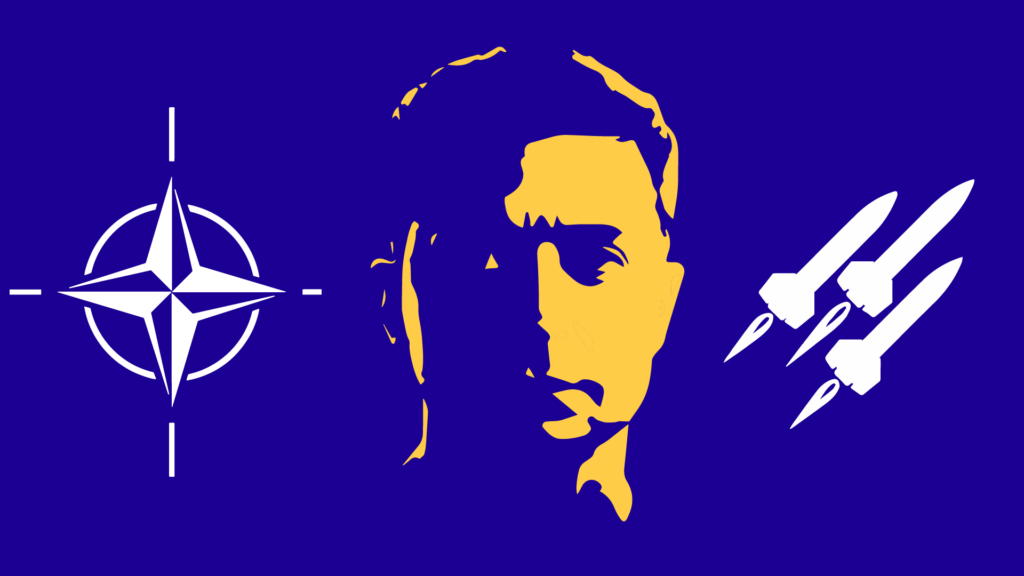 Illustration: Thomas Gaulkin / Daria Chekman / depositphotos.com
Illustration: Thomas Gaulkin / Daria Chekman / depositphotos.com
Recently, Ukraine’s President Volodymyr Zelensky alarmed international audiences by alluding to the prospect of Ukraine’s nuclear rearmament.
Addressing a European Council meeting in Brussels on October 17, Zelensky invoked Ukraine’s decision to surrender nuclear weapons inherited from the Soviet Union in exchange for security commitments from nuclear states—the United States, United Kingdom, and Russia—recorded in the 1994 Budapest Memorandum. (China and France pledged similar security assurances in separate letters.) The Budapest Memorandum commitments failed spectacularly to prevent Russian aggression against Ukraine. So, how does Ukraine provide for its security? Zelensky outlined two options: “Either Ukraine will have nuclear weapons, and then it will be a defense for us, or Ukraine will be in NATO. NATO countries are not at war today. All people are alive in NATO countries. And that is why we choose NATO over nuclear weapons.”
On the same day, Zelensky revealed that he had delivered a similar message to presidential candidate Donald Trump during his visit to the United States in late September and added that Trump responded that his reasoning made sense.
However, at a press conference with NATO Secretary General Mark Rutte later that day, Zelenskyy walked back his comments, emphasizing that Ukraine has no intention to pursue nuclear weapons. Ukraine’s foreign ministry rushed to confirm the country’s commitment to the Nuclear Non-Proliferation Treaty (NPT) as a non-nuclear weapon state in a separate statement.
Zelensky’s rhetoric could be read as either a credible threat or a desperate bluff to convince the West to extend to Ukraine an invitation to NATO—the number one item on Zelensky’s recently unveiled “victory plan.” But perhaps it is none of that. Zelensky’s recent declarations may be a reminder of Ukraine’s contribution, in good faith, to nuclear nonproliferation in the early 1990s, of its dire security predicament today, and of the need to find a solution for Ukraine’s long-term security and to maintain sustainable peace in Europe.
“NATO or nukes”—again. Zelensky’s proposition is not new to Ukraine. Shortly after Russia occupied and annexed Crimea in 2014 and stoked the war in the Donbas, some Ukrainian politicians called for the withdrawal from the NPT and the renewal of Ukraine’s nuclear program. In spring 2021, as Russian troops amassed on Ukrainian borders, Ukraine’s then-ambassador to Germany, Andriy Melnyk, gained notoriety by stating that if NATO membership is not extended to Ukraine, the country will have little choice but “to arm [itself], and maybe think about nuclear status again,” adding, “How else can we guarantee our defense?”
On February 19, 2022, just five days before Russia embarked on a full-scale invasion of Ukraine, Zelensky, in an address to the Munich Security Conference, sounded a similar note: If Ukraine does not obtain real security guarantees, it “will have every right to believe that the Budapest Memorandum is not working and all the package decisions of 1994 are in doubt,” referring to Ukraine’s nuclear disarmament and membership in the NPT.
Ukrainian nukes? Probably not. Now that Zelensky resurrected the “NATO or nukes” proposal, he might be taking a page from an old playbook used successfully by other US allies and partners in the past by leveraging fears of nuclear proliferation in exchange for a more robust security guarantee: Ukraine’s NATO membership. West Germany during the Cold War, Taiwan, Japan, and South Korea have all successfully leveraged their nuclear latency to bolster US commitment to their security. (Indeed, keeping Washington’s eyes glued to security in the region was arguably one of the objectives of the South African nuclear program before it was dismantled in 1991 and may likely be present in Israel’s current nuclear calculus.)
For this strategy to have a chance of success, however, a country must possess a credible capability to develop nuclear weapons. That Ukraine will be able to develop an operational nuclear deterrent during this war or even within the next decade is, to say the least, highly unlikely. Ukraine lacks a full nuclear fuel cycle and other critical elements of a nuclear weapons program that would take time to build and exert significant economic, political, and international costs.
Even if Ukraine mustered the necessary resources to launch a nuclear weapons program, Russia and the United States are not going to stand idly by watching Ukraine’s progress toward the bomb. Ukraine would lose the support of the West on which it greatly relies for its security and economic survival, its advance toward EU membership would likely halt, and Russia would do everything in its power to nip Ukraine’s weapons program in the bud.
Zelensky’s “NATO or nukes” as a ploy for immediate NATO membership lacks credibility and is unlikely to succeed as a strategy.
A problem in search of a solution. Whatever the merits of Zelensky’s ploy, the international community cannot blame him for stating the obvious: NATO members, under their nuclear umbrella, are at peace while Ukraine is at war. Russia and NATO exercise restraint vis-à-vis each other based on a shared understanding that a direct conventional confrontation between two nuclear-armed adversaries would carry the inherent risk of nuclear escalation and possibly a nuclear war. Russia does not exhibit a similar restraint toward a non-nuclear, non-allied Ukraine. To add insult to injury, Russia, with its nuclear saber-rattling, has succeeded in partly influencing the timing and conditions of Western arms supplies to Ukraine, hampering Ukraine’s defense effort. In short, peace is the prerogative of those who are fortunate to benefit from nuclear deterrence. The unfortunate ones must suffer war.
But security, it turns out, is not private property but an international public good. The festering war in Ukraine and its spillovers to Europe and beyond reveal that peace on the continent cannot be sustainable without a solution to Ukraine’s security problem.
The essential logic of Ukraine’s security predicament, as outlined by Zelensky, cannot be as easily dismissed as Ukraine’s non-existent nuclear weapons capabilities. If left unresolved, it will continue to conjure up a nuclear option. In a post-Cold War world, denuclearized Ukraine found itself in a security vacuum: a buffer zone between an expanded NATO and a revisionist Russia. Ukraine’s non-nuclear, non-allied status failed as a security strategy. What are Ukraine’s other options for a durable security solution that would allow it to live in peace and thrive in the future? One obvious option is to join a military alliance that proved effective in deterring Russian aggression through mutual defense commitments and US security guarantees. Absent that, Ukraine will be left to fend for itself with whatever means it can muster. In an essentially asymmetric power relation between Russia and Ukraine, nuclear weapons will continue to be seen in Ukraine as a great equalizer.
Given this irrefutable logic, it is no wonder Ukrainians continue to draw attention to their decision to surrender Soviet nuclear inheritance and put faith in international security institutions such as the UN and the NPT, which ultimately failed them. It is also no wonder that the moral high ground gained by Ukraine’s unprecedented nuclear renunciation is small comfort to the multitudes who lost their lives, limbs, and livelihoods on the killing fields in Ukraine. Nor is it surprising that most Ukrainians now view the decision to disarm with regret and support nuclear rearmament after the meek reaction of the United States and the United Kingdom—the other signatories of the Budapest Memorandum—to Russia’s initial breach of it in 2014.
Putting Ukraine’s nuclear ghosts to rest. In the current political and security environment, Ukraine’s capacity to develop nuclear weapons is limited. Yet, if this war taught us anything, it is that what seemed utterly impossible yesterday—such as Ukraine surviving a full-scale Russian onslaught for more than 72 hours, sinking the flagship cruiser of the Russian Black Sea Fleet, reaching deep into Russian homeland to strike strategic bomber bases with its indigenously developed drones, driving German tanks, or flying American F-16 fighter jets—becomes possible tomorrow.
The future, however, stretches well beyond tomorrow.
Institutions such as the NPT, which helped prevent uncontrolled nuclear proliferation in the past, are exhibiting severe strains and might cease to be effective in a couple of decades. US nonproliferation policy might not be a priority for a future administration set on disengaging from international affairs. Meanwhile, nuclear weapons have been with us for nearly eight decades, and despite the best arms control and disarmament efforts, they are not going to disappear any time soon. All nuclear powers are modernizing—and some rapidly expanding—their nuclear arsenals. Russia will remain a nuclear power, and Ukraine its neighbor. Absent a major transformation in Russia on the scale of the Soviet collapse, Ukraine’s security environment is bound to remain precarious and its need for a deterrent against a nuclear-armed Russia acute for the foreseeable future.
The ghosts of Ukraine’s nuclear past, its non-nuclear war-torn present, and an imagined nuclear future are bound to haunt the ruins of Ukraine’s bombed-out cities and its mine-infested black-earth fields, the souls of those who perished in this war, and the consciousness of the survivors for decades to come.
Only a sustainable long-term security solution, like that of a NATO membership to deter a nuclear Russia, will put the specter of nuclear-armed Ukraine to rest. Absent such a solution, Ukrainians and their president will continue to call out the hypocrisy of those countries that are incensed by the very mention of Ukraine’s nuclear ambitions—real or imagined—while basing their security on a nuclear deterrent or hiding comfortably under the US nuclear umbrella, both of which are denied to Ukraine.
Together, we make the world safer.
The Bulletin elevates expert voices above the noise. But as an independent nonprofit organization, our operations depend on the support of readers like you. Help us continue to deliver quality journalism that holds leaders accountable. Your support of our work at any level is important. In return, we promise our coverage will be understandable, influential, vigilant, solution-oriented, and fair-minded. Together we can make a difference.
Keywords: Budapest memorandum, Cold War, NATO, Russia, Russia-Ukraine war, Volodymyr Zelensky, nuclear deterrence, nuclear threats, nuclear weapons
Topics: Nuclear Weapons








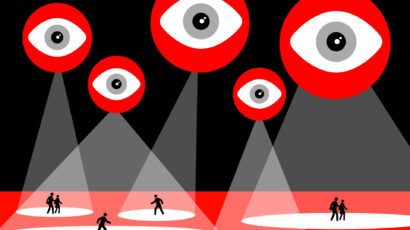
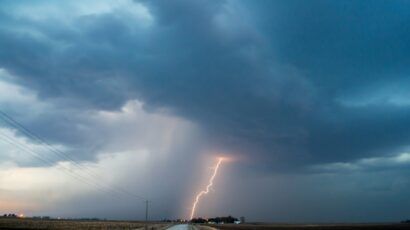
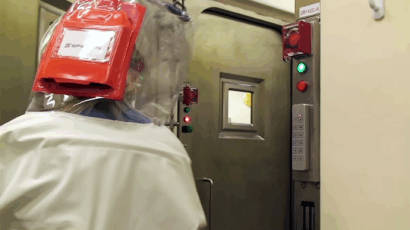
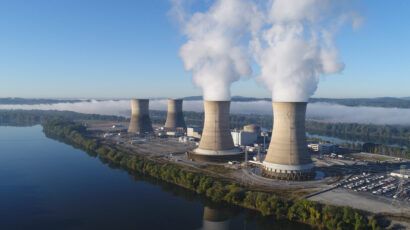




It is precisely the threat of Ukraine becoming a NATO member on top of NATO expansion that brought about this war in the first place, as well as CIA meddling that brought about the toppling of an elected president in 2014.
This article’s premise is that the cure for an infection, is more infection!
Elected is misleading. Yanukovych won the Ukrainian Presidency fairly but he subsequently secured control of the Ukrainian parliament and courts through dubious, unconstitutional, and/or illegal means.
It was extraordinary to read that “Only a sustainable long-term security solution, like that of a NATO membership to deter a nuclear Russia, will put the specter of nuclear-armed Ukraine to rest” when the attempts to bring Ukraine into NANO caused this crisis in the first place. There was a better way after Ukraine got its independence in 1991. A certain level of autonomy for the regions with large Russian ethnic populations and neutral status with no membership in any military blocs was necessary to allow the country to live peacefully and happily within its 1991 borders. However, some inside (corrupt… Read more »
The author’s title and premise, “NATO or Nukes,” is a call for either of these two things as the solution for what she call “Ukraine’s security problem.” In fact, neither of them is an option at this time. The war in Ukraine happening now is a result of NATO’s attempt to bring Ukraine into NATO, despite Russia’s concerns over its own security. Are we to believe that the security of Ukraine is more important than the security of Russia? One also has to ask whether we are to believe that not having the Ukraine in NATO is somehow a “security… Read more »
I hate to say it but Ukraine would be more secure redeveloping their nuclear arsenal as quickly as possible. US and UK security garuntees are just paper tigers. Russia has a meglomaniac dictator cast from the same mold as Hitler. Apparently Putin feels the best form of security is to annex Ukraine. Would we allow Ukraine to develop nuclear weapons? Currently the entire world is watching Iran develope them. When we know it a near certainty they will use them.
I can’t add anything to Mario’s analysis. It corresponds with that of the former U.S. Ambassador to the Soviet Union during their collapse, Jack Matlock, as well as many others who were around at that time and know the full history. Regarding the Putin / Hitler comparison, it simply doesn’t match the facts. Nazi Germany was far more powerful at that time than Russia is today. There is a pathological fear and hatred of Putin that ignores the fact that Russia’s actions in Ukraine were and are seen as necessary by the whole leadership of Russia and that wouldn’t change… Read more »
If Putin dies tomorrow Russia becomes 10 states!